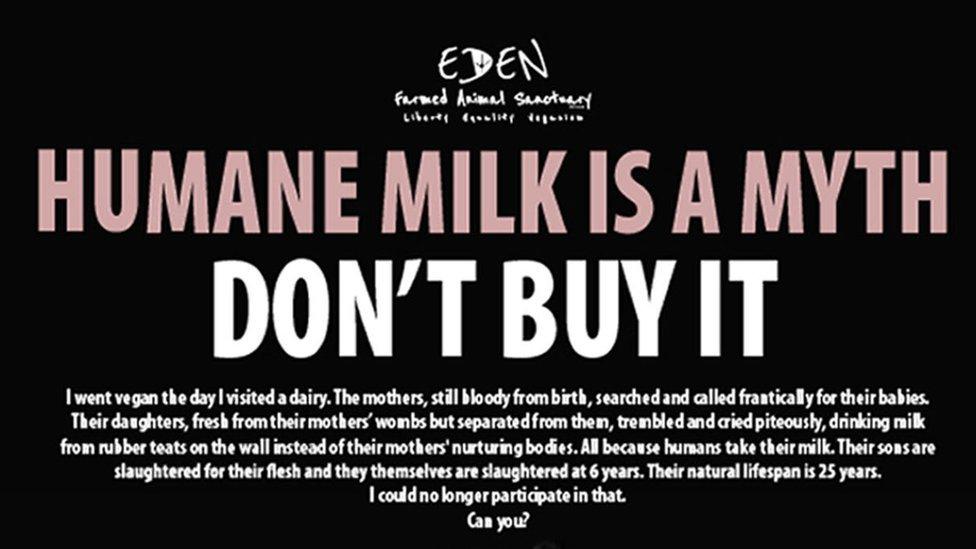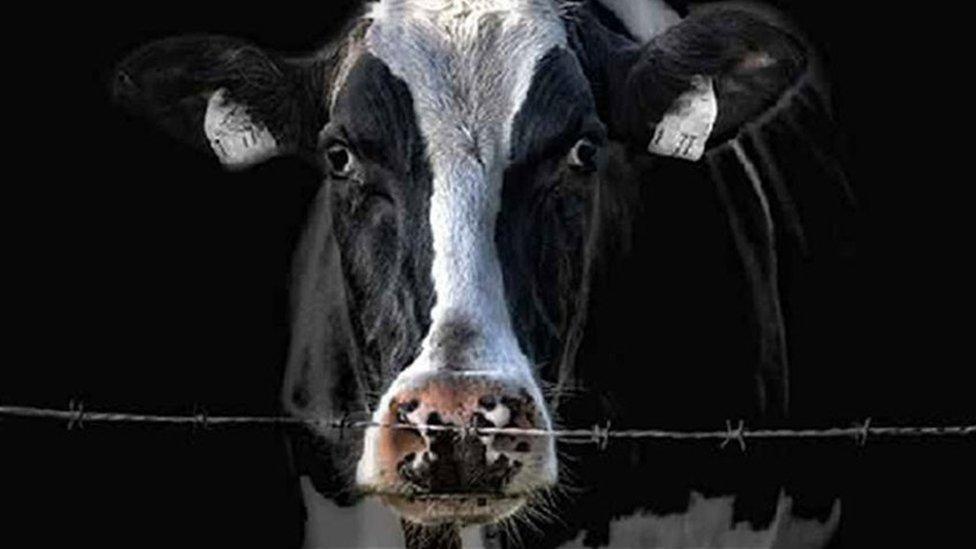Vegan advert claiming 'Humane milk is a myth' cleared by ASA
- Published

An advert by a vegan campaign group claiming "Humane milk is a myth" has been cleared by regulators, despite complaints from the dairy industry.
Milk producers said it described the separation of mothers from their calves in an inaccurate and misleading way.
The ad featured a photo of a cow behind a piece of barbed wire and the headline "Humane milk is a myth. Don't buy it."
The Advertising Standards Authority (ASA) said, external it was "unlikely to materially mislead readers".
The national newspaper advert for campaign group Go Vegan World goes on to state: "I went vegan the day I visited a dairy. The mothers, still bloody from birth, searched and called frantically for their babies.
"Their daughters, fresh from their mothers' wombs but separated from them, trembled and cried piteously, drinking milk from rubber teats on the wall instead of their mothers' nurturing bodies. All because humans take their milk."
'Hard-hitting'
The ASA said seven complainants, some of whom had experience working in the dairy industry, suggested the claims were misleading and questioned whether they could be substantiated.
Go Vegan World said the advert did not state or imply that calves were separated from their mothers prior to the 12 to 24 hours recommended by the Department for Environment, Food and Rural Affairs (Defra).
But they said they believed the exact timing was irrelevant, and most people would consider separation at 25 hours equally as unjust as separation at 24 hours.

The ASA said the language in the advert was "emotional and hard-hitting"
Clearing the advert, the ASA said it understood the complainants were concerned the advert implied a significant number of dairy farms did not comply with animal welfare standards in place in the UK, and milk production was therefore "inhumane" in that sense.
But it concluded that while "the language used to express the claims was emotional and hard-hitting", it was a fact that calves were generally separated from their mothers very soon after birth under Defra regulations and so the advert was unlikely to materially mislead.